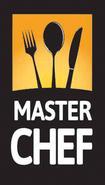Cooking up a storm
Leanne Gulliver gives us a taste of a food industry dispute. O/172/20, MASTERCHEF (Opposition), UK IPO, 17th March 2020


In this case, Shine TV Ltd (STL), the British media production company behind the well-known MasterChef television series, defended an invalidation action filed by Mana Y A Ltd (MYA), an Israeli frozen and packaged food company, against its UK registration No. 3267851 for MASTERCHEF (the 2017 MASTERCHEF Registration) in classes 29 and 30, before successfully opposing MYA’s UK application No. 3324139 (the Application) for goods in classes 29 and 30.
STL opposed the Application on the basis that, contrary to:
- Section 5(2)(b) of the Trade Marks Act 1994 (the Act), the Application was confusingly similar to STL’s earlier UK and EU registrations for the mark MASTERCHEF for goods and services in classes 8, 9, 21, 29, 30, and 43;
- Section 5(3), use of the mark would take unfair advantage of its reputation, and dilute the distinctiveness of the UK and EU MASTERCHEF registrations for entertainment and production services in class 41; and
- Section 5(4)(a), use of the mark would lead to misrepresentation and cause damage because STL owned goodwill in the MASTERCHEF sign for entertainment services.
Subsequently, MYA sought to revoke STL’s UK trade marks, No. 2596545 and 2596542, for MASTERCHEF in classes 29 and 30 (the Registrations) on the basis that the Registrations had not been put to genuine use in the UK in the five years since being registered. However, before the UK IPO rendered the revocation decisions, STL registered the 2017 MASTERCHEF Registration.
MYA counterclaimed that contrary to s3(6) of the Act, the 2017 MASTERCHEF Registration should be declared invalid on the basis that STL had applied for the mark in bad faith, simply to prevent MYA registering the Application, and had no intention of using the mark on the goods for which registration was sought.
Decision on invalidity
The Hearing Officer (HO) held that the mark had not been filed in bad faith, and invalidity under s3(6) therefore failed. STL’s evidence demonstrated that it had for some considerable time intended or wished to use its brand and registered trade marks upon foodstuffs, as a logical extension of its reputation in television programmes about cookery.
While STL recognised that the revocation actions would succeed, it still intended to exploit its reputation by finding a partner to push a line of ready meals and/or food boxes. It also wanted to protect its reputation by ensuring others did not use similar trade marks for foodstuffs, over which it would have no quality control and which could ultimately sully its reputation.
Decision on opposition
STL relied on the 2017 MASTERCHEF Registration, and the opposition succeeded under s5(2)(b) and s5(4) of the Act. The HO concluded that a likelihood of confusion existed as: (i) the Application covers identical or similar goods, and (ii) the marks are highly similar.
Further, STL’s evidence demonstrated goodwill in the mark MASTERCHEF in respect of cookery television programmes in the UK. Use of MYA’s mark upon foods and drinks would cause a misrepresentation to the viewers of STL’s programmes, as they would consider the provision of food and drink to be a perfectly natural extension of STL’s business.
The HO did not consider s5(3) but commented that given its previous findings it would no doubt have also found this ground to be successful too.
Key points
- A possible or contingent intention to use a mark in relation to goods/services covered by an application would normally be sufficient to prevent a finding of bad faith on the grounds of no intention to use a mark
- A person is presumed to have acted in good faith unless the contrary is proved. The standard of proof is on the balance of probabilities, but cogent evidence is required due to the seriousness of the allegation





